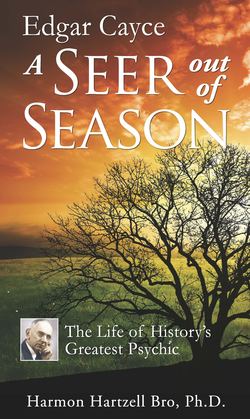Читать книгу Edgar Cayce A Seer Out of Season - Harmon Hartzell Bro - Страница 37
На сайте Литреса книга снята с продажи.
Cleansing and Freeing the Mind
ОглавлениеThe entranced Cayce set about helping his counselees eliminate poisons or blocks in their minds and emotions as well, where I also wrote out in my little notebook. He did not refer to Freud’s anal type of character structure, meant to describe the person overly committed to holding back or hoarding in order to have power over others through what was withheld, supplemented by excessive order, control, and tightness. But he operated as though this were an important set of psychological patterns. Those who were secretive with their thoughts, feelings, and belongings, and who failed to give themselves fully to relationships, were pushed by Cayce in his medical readings to more free traffic with both persons and things. A banker, for example, was asked how long since he had played with children, or gotten his hands dirty, and was urged to new ventures. Anyone who overly stressed order and control, or who wrongly eliminated either natural drives or natural conscience, might be challenged. Cayce’s constant emphasis on service meant that life was fullest in terms of what was given out rather than what was held back.
Grudges and resentments needed flushing out as truly as poison-making material in colons. He traced how holding onto these negative patterns not only troubled the mind but upset the tissues. In similar fashion he outlined how withholding affection and honest feeling in the effort to impress or control others, or even supposedly to please God, could upset the physical system just as much as indulging in exaggerated emotions. (“One without a temper isn’t worth much, though one who doesn’t control it is worth less.”) In the physical readings, just as in the more psychological and spiritual life readings, he took account of not only what must be cleansed from the psyche, but also what was being wrongly eliminated, denied, repressed, ignored, overcontrolled, or held in. Here he pointed to what Jung described as response to the overdeveloped persona or social mask in a disturbing inner shadow.
Cayce also gave special attention to vows which individuals had made, whether named by them or not. In his view, such strong commitments (for example, a vow not to get hurt again in intimate relationships) could be surprisingly effective for long periods, requiring disciplined cleaning. Indeed, vows could last for several lifetimes, creating severe health-and-wholeness problems. Yet in general Cayce was not an advocate of dumping feelings. Just as in handling the body, he gave priority to measured and repeated small steps rather than drastic catharses or excisions.
